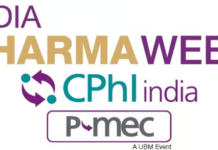Bangalore, March 19, 2017: With more cases of swine flu or H1N1 coming to light, city doctors are urging people to adopt simple measures to prevent the spread of the virus. These include steps like washing hands, covering mouth & nose during coughing or sneezing, avoiding crowded spaces and boosting immunity.
However, the good news is that with the soaring temperatures in the city, doctors predict a dip in the number of swine flu cases.
“Heat is usually good for infections as it helps in killing the germs. The infections during summers mostly occurs due to the scarcity of water during this season which in turn can lead to the use of contaminated water in various places and poor hygiene. This can cause ailments like skin infections, diarrhoeal diseases, eye infections etc.,” said Dr.Rini Banerjee, Consultant Infectious Disease, Columbia Asia Referral Hospital, Yeshwanthpur
“There is no co-relation with monsoon and H1N1. Monsoon season can lead to various infections due to humidity and people staying indoors to avoid rains, leading to spread in infections. The main reason why we see a rise in H1N1 cases is because proper diagnostic tests are in place and the awareness about H1N1 has increased among the people. Due to this there are more cases being registered. However, the rate of mortality remains the same as earlier,” added the doctor.
The symptoms of swine flu are similar to seasonal influenza which include fever with chills, cough, sore throat, headache and body ache, and occasionally associated with nausea and diarrhea. It is pertinent not to ignore any symptom and seek medical attention immediately especially if you have symptoms like shortness of breath, dizziness, vomiting, chest pain.
“The H1N1 virus spreads from human to human. It typically spreads when an infected person sneezes in the open and scatters the virus in the air. It also spreads when we touch or shake hands with infected people or touch objects like doorknobs, tables, chairs in public places that may have been infected.,” said Dr. Rini
“This makes it very contagious as even a single sneeze can scatter thousands of germs in the air and infect many people. People who work in extremely crowded places and come in contact with an overcrowded environment on a regular basis are at extreme risk. So are the people who use public transport daily. Children, pregnant women, elderly population, people with diabetes and chronic obstructive lung diseases are more susceptible to severe conditions of H1N1 and should get themselves tested at the earliest,” added the doctor
Below are a few steps by Dr. Rini that one can follow to avoid getting infected:
- Wash hands multiple times a day thoroughly using soap and water; if you are out of home, make it a point to wash hands often or clean hands with alcohol based hand sanitizers.
- Avoid touching objects like doors, seats, tables, handles at public places; they might be carrying the virus. If you touch, clean hands with soap and water or alcohol based hand sanitizers
- Drink plenty of water and fluids and consume fresh fruits which contain vitamin C to boost your immunity; this is the best way to ward off the virus
- Always cover your nose and mouth with a paper napkin or handkerchief when you sneeze and discard them in a closed dust bin. If you do not have them hand -sneeze or cough into the sleeve of your clothes
- If you feel ill, stay at home and seek a doctor’s help, and avoid contact with other people to keep from spreading the infection to others.
- Get vaccinated if you are in the high risk group – people who work in crowded places, elderly, children, people who have lung or respiratory diseases / cardiac disease /pregnant women/diabetes/kidney disease
- Avoid handshakes and hugs; stick to verbal greetings when you meet people
- Wear light coloured/ cotton clothes
- Children should avoid the sun and should go out in the mornings or evening (after sunset) to play.
- For office goers, if the office is small, make sure to open the windows to increase ventilation
- Elderly people and children should try to be in cooler places to avoid heat –related illnesses.
- Heat can lead to water scarcity and use of contaminated water in various places. Hence avoid drinking water or juices outside. If you can’t avoid it completely, make sure that you check that the water is safe for drinking. Diarrhoea is one of the main ailments that can arise due to consumption of contaminated water.
Corporate Comm India(CCI Newswire)























